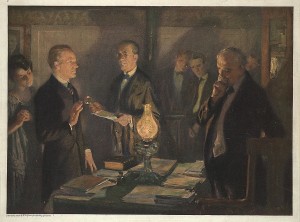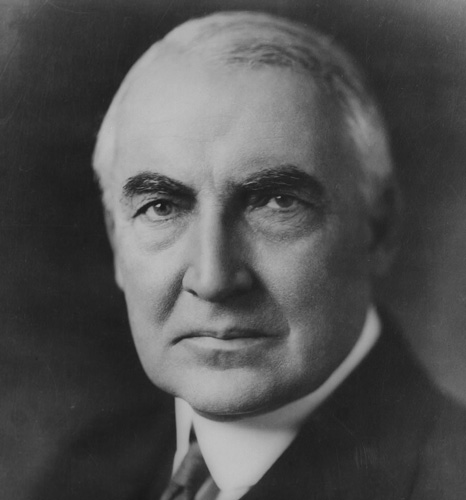Welcome to the big leagues, rookie!
Rand Simberg reports that the Russians have suddenly become concerned about the safety of the SpaceX Falcon 9 rocket when used as a supply vessel for the International Space Station … now that that rocket seriously threatens the near-term Russian monopoly in heavy lift transport of people and materiel.
SpaceX’‘s story, for those who aren’t space enthusiasts, is a tale of new technology, dot-com money, and threatened “iron rice bowls” from one end of the high-technology world to the other.
Started in 2002 by Elon Musk with money he acquired after co-founding PayPal, Musk’s vision was to develop a new American liquid-fueled rocket engine and use economies of production and scale to reduce per-pound launch costs to a fraction of current commercial rates. Rather than a game of giant consortia, he thought that a relatively small private company could launch commercial rockets safely and much more cheaply.
In the early years, the Falcon 1 rocket, using a new Merlin engine designed and manufactured by SpaceX, was subject to several flight failures that insiders largely attributed to lack of company access to the vast body of engineering lore used in past rocket launches. Not enough engineers. Not enough expertise. Whether that was true or not, the Falcon 1 (single engine) rocket had its first successful launch-to-orbit in 2008. Six years from blank piece of paper to orbit. Nonetheless, Musk has often been dismissed by other commercial space launch organizations as a dilettante, wasting his own money on a venture that would never amount to much, and would certainly never deliver any service cheaper than the giant aerospace companies of Russia, China, the EU, and the United States.
All that started to change when less than two years after the successful launch of the Falcon 1 rocket, SpaceX’s new Falcon 9 (running 9 Merlin engines in tandem) was able to reach orbit. Suddenly SpaceX had a rocket big enough to deliver serious weight to space, and compete with the biggest commercial and state-sponsored launch services. Musk’s philosophy of rocket modularization (and cost reduction) had been proven out. A mere six months later, the company launched a second Falcon 9 to orbit with a pressurized “Dragon” capsule on top. SpaceX became the first private firm to launch and recover a crew-capable space capsule, with a splash-down off the Pacific coast of the US. To successfully launch a brand-new model of rocket, twice, with complete success, defies the laws of probability in the space launch industry. Maybe Musk really had stumbled onto a new way of designing, manufacturing, and operating rockets.
The idea that a private firm could deliver cargo, let alone crews, to the International Space Station at a fraction of the cost of the Space Shuttle or Russian Soyuz capsules would have been inconceivable a decade ago. And yet here we are in 2011 with an American dot-com multi-millionaire announcing new rockets and successfully delivering them.
Just recently, SpaceX announced plans to develop the “Falcon Heavy” which would run three Falcon 9s (3×9=27 engines) as a single first stage, delivering a proposed 117,000 pounds to Low Earth Orbit … more than the capacity of all other currently available commercial heavy-lift rockets. More, in fact, than has ever been lifted in single launches since the Saturn V carried the Apollo moon missions star-wards. First launch of the Falcon Heavy is scheduled for 2013, from Vandenburg Air Force Base. Characteristically, Musk isn’t shy about his dream for the Falcon Heavy. Hypothetical trips to the Moon, to Mars, to an asteroid, now fill his speeches.
Musk’s earlier claims of “game-changer” technology and corporate process appear to be coming true. If he delivers on his recent promises with anything near the success rate of his earlier claims, almost every space-faring nation or corporation is going to be deeply affected.
Let’s be clear, also. Musk has played the taxpayer-dollar game skillfully as he’s found initial technical success and grown his company’s staff and technical capacity. He’s received several multi-million dollar contracts from NASA for demonstration flights and future cargo delivery to the Space Station. He’s parked his corporate facilities in California (HQ and manufacturing), Texas (engine test-stand), and Florida (Cape Canaveral launch facilities) … covering his political bases by hedging good relations with US senators who already know what kind of money and jobs are created by space industry. The only senator not to dip his beak, as far as I can tell, was from Alabama (Huntsville). So Mr. Musk knows his domestic politics, or has learned its harsh anti-market lessons. And he’s successfully squared the circle of NASA bureaucracy, launching rockets on the one hand, and reassuring various government agencies that he should be allowed to.
But the opening salvo by the Russians is a prelude to a new playing field that Musk will need to master. International politics.
There are a lot of rocket engineers around the world who’ll be out of work if Elon Musk and his company can deliver cargo and people to space for half of what it costs the current aerospace giants. And even the Russians and Chinese, who can subsidize launch costs to the tune of hundreds of millions of dollars, still can’t afford to give away those launches indefinitely. Both nations operate in the market economy to the extent that they can, at the very least, estimate their per-launch losses trying to undercut SpaceX’s prices.
As an amateur who’s thrilled by the appearance of a private space industry in the last ten years, I enthused about SpaceX’s successful December launch to an colleague (ex-military) who specializes in high-tech project management. His response was “now the sabotage begins.”
And he may well be right. Whether Musk has been smart, or just plain lucky, the progress of SpaceX over the last decade has been (to my mind) dramatic. My sense is that it’s a matter of capital investment leveraging a backlog of knowledge (in technology and operational process). As long as he was a unproven minnow at the government trough, he could be ignored. Now however, SpaceX is getting big enough to put a dent in established companies’ profits and executive bonuses. There’s no reason why nations or large corporations could not have duplicated what Musk has done … but they either had no incentive or had organizational and social impediments. An “installed base.”
At the moment, they don’t seem to be trying to beat him with comparable technology. And he doesn’t seem to want to be bought out. So what competitive strategy is left? Political impediments are cheapest. Intellectual property theft is likely but it still takes time to turn that into a competing product. And what if the technology is just a part of the equation. What if workforce optimization and “one rich, risk-taking, boss” are the essential components of SpaceX’s rapid success? Will sabotage of SpaceX rockets be the only route to slowing the company down? Fulfilling, conveniently, Russian “concerns.”
Up until now, Musk has been calculating costs based on his technical requirements for design and manufacture (with a fudge factor for domestic political arbitrage). I rather doubt he’s also factored in the burgeoning security apparatus he’ll need to wrap around SpaceX’s activities to inhibit industrial espionage and/or industrial sabotage. And as he takes on more government contracts (both military and civilian), no doubt the bureaucratic restrictions on payload handling and the extra demands for operational oversight will boost company costs dramatically. Will SpaceX be strangled by a combination of bureaucrats, thieves, and saboteurs?
It’d be disheartening to see SpaceX costs slowly but surely reach equilibrium with pricing in the rest of the industry. But there’s no doubt that, left to itself, the private space industry will make some wealthy men incredibly rich, and some aerospace executives unemployed. How clever people respond to that challenge will be interesting to watch.
Enough SpaceX technology appearing in other countries in bootleg form, and enough “unexplained” failures of those really big (really expensive) SpaceX rockets, will spell a new and grimmer phase of the private space business. More and more “iron rice bowls” are being broken by SpaceX with each passing year. Hope Elon’s brushing up on his Sun Tzu.

